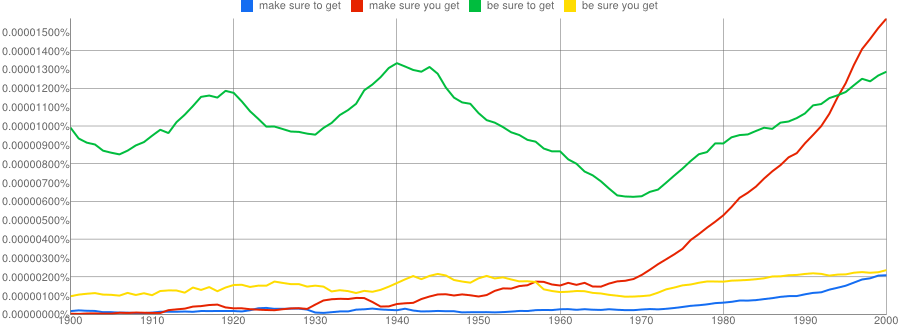These two versions below are used interchangeably where I live now in the United States:
- Make sure to do something.
- Be sure to do something.
But I always have found the first version clumsy. It sounds like someone is starting off their sentence saying "make sure THAT you do something" and ending it as if they were saying "be sure TO do something".
I come from a strong linguistic background in the UK where there was an emphasis on grammar, and I can’t imagine my English teachers from private school using the “make sure to” version.
Is “make sure to” correct English in its purest form?
For example, would you approve of the “make sure to” version if you were a professional book publisher or a a grammar school teacher?
PS: I'm not sure what the correct tags are — compound verbs? intransitive verbs?

